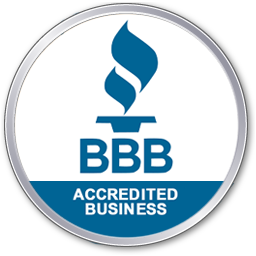Executive Summary
- Indoor air pollutants are harmful chemicals and particulate matter that degrade indoor air quality.
- Common forms of indoor air pollutants are household cleaners, pet dander, mold, mildew, and volatile organic compounds (VOCs).
- Short-term exposure to indoor air pollutants can trigger respiratory conditions like asthma and allergies, while long-term exposure poses cardiovascular and neurological risks.
- Using air purifiers, filtered ventilation systems, and eco-friendly cleaning products can reduce air pollution. Still, the best way to address air pollution issues is to have a professional assess your indoor air quality (IAQ).
What to Know About Indoor Air Pollutants
Due to buildings’ enclosed nature, indoor air can have 200% to 500% times more pollutants than open spaces. Particulate matter, airborne chemicals, and other pollutants can hinder your property’s indoor air quality (IAQ), increasing the inhabitants’ risk of respiratory diseases like asthma. In extreme cases, long-term exposure to poor IAQ can also cause severe health problems like heart complications, cognitive deficits, and cancer.
Traces of household cleaners, pet dander, fungi, and building materials are some of the most common indoor air pollutants. Air purifiers and filtered ventilation systems are excellent ways to reduce the amount of indoor air pollutants. It is also important to have a trained environmental services team routinely check your IAQ to ensure your property’s air supply is safe.
Common Indoor Air Pollutants
Commonplace things inside your home or office, including pets, cleaning products, and building materials, can generate indoor air pollutants and lower your IAQ. Knowing about prevalent types of indoor air pollutants will allow you to adapt your lifestyle to enhance your IAQ and minimize health problems. The following pollutants are commonly found in a building’s air supply.
Household Cleaners
Many household cleaners contain harmful components. For example, cleaning products with pine and citrus oils can contain terpenes, which can produce IAQ pollutants like formaldehyde and ultrafine particles.
Everyone should be mindful of the ingredients in their cleaning supplies and limit air pollution by:
- Using certified cleaning agents that meet the Safer Choice standards set by the Environmental Protection Agency (EPA).
- Avoiding cleaning products and air fresheners with pine or citrus oils.
- Not using consumer products that emit harmful levels of ozone.
- Using cleaning agents sparingly.
- Liberally rinsing surfaces, sponges, towels, and mops with water after cleaning to avoid further reactions with the air.
- Running a ventilation system during cleaning and for a few hours after.
Cleaning is an expected part of property maintenance, but understanding how to clean safely can help you foster clean air.
Pet Dander
Most forms of pet dander are lightweight, microscopic, and irregularly shaped, causing them to hover in the air longer than other types of allergens. While in the air, pet dander can be breathed in and generate allergic responses similar to hay fever.
The best way to reduce air pollution caused by pet dander is to:
- Regularly wash and brush your pet in an isolated area.
- Keep pets out of poorly ventilated spaces
- Keep pets off furniture
- Routinely clean carpets, furniture, and clothing that may have pet dander.
Even after collecting on furniture or carpets, pet dander can be sent back into the air when those spaces are interacted with again. Therefore, it is essential to clean your pet and the rooms they are in consistently.
Mold and Mildew
Mold and mildew are fungi that thrive in moist, shaded environments. They reproduce using spores that float through the air and are too small to see with the naked eye. When inhaled, mold or mildew particles can spark allergic reactions and irritation that resemble fever-like symptoms.
Examples of ways to control mold and mildew growth are:
- Using an air conditioner or dehumidifier to keep your building’s humidity levels low—less than 50% for the whole day.
- Using vents to circulate air in and out of your home.
- Patching any leaks in your building’s roof, walls, or plumbing.
- Fully cleaning and drying your property within 24 to 48 hours after a flood.
- Removing or replacing wet items like carpets and upholstery that cannot be quickly dried.
Controlling moisture is the best way to prevent mold and mildew growth. Cool, wet months facilitate mold growth, sparking seasonal changes to indoor air quality. At all times of the year, keep your dwelling and its contents dry and clean to minimize fungi-fueled air pollution.
Volatile Organic Compounds
Volatile Organic Compounds (VOCs) are organic compounds with high vapor pressures and low water solubilities. Many VOCs are manmade chemicals found in various items like medicines and refrigerants. Additionally, VOCs are used to construct furniture, building materials, and paints, making them widespread in many homes.
When VOC particles are inhaled, irritation, difficulty breathing, and nausea can occur. In extreme cases, ingesting VOCs can damage organs and the central nervous system or cause cancer.
You can minimize VOC air pollution by:
- Using paints and building supplies with “Low VOCs” indicated on their labels.
- Following manufacturer instructions for painting and building projects.
- Avoiding tobacco smoke, which contains VOCs and other carcinogens.
- Thoroughly ventilating a room when you use products that contain VOCs.
Although VOCs can be found in many items, reading the contents of products and being intentional about your usage can help limit indoor air pollution. Still, it may be challenging to know if there is a high level of VOCs and other pollutants in your air supply.
Considering chemicals, pet dander, fungi spores, and VOCs are usually undetectable to the unaided eye, it is crucial to have a team of professionals regularly perform indoor air quality screening.
Health Impacts of Indoor Air Pollution
Exposure to indoor air pollution can cause uncomfortable or harmful bodily responses. Symptoms can vary in severity depending on the type of pollutant and the inhabitant’s sensitivity to it.
Short-Term Effects of Indoor Air Pollution
If IAQ is low enough, some people can feel near-immediate symptoms from indoor air pollutants. The most common short-term effects of indoor air pollution are:
- Eye irritation
- Nose irritation
- Throat irritation
- Headaches
- Dizziness
- Fatigue
- Worsening of existing asthma
Many effects of poor IAQ resemble viral disease symptoms, so it can be challenging to determine if a virus or air pollution caused your affliction—get guidance from an environmental professional to detect signs of poor air quality.
Long-Term Effects of Indoor Air Pollution
Sometimes, health effects can arise years after long-term exposure to indoor air pollution. People’s bodies react differently to indoor air pollution, but in extreme cases, people can develop the following diseases and deficits:
- Respiratory diseases like asthma
- Heart diseases
- Cognitive deficiencies
- Cancer
Although indoor air pollutants rarely generate severe, life-threatening diseases, ensuring your dwelling has satisfactory IAQ is a great way to prioritize good health.
Mitigation Strategies to Improve Air Quality
Thankfully, many ways exist to mitigate indoor air pollutants and improve your building’s IAQ. Some noteworthy ways to remove impurities and increase IAQ are:
- Ensuring proper ventilation – Most homes have a heating, ventilation, and air conditioning (HVAC) system designed to filter indoor air. Ensuring your HVAC vents are clean and filters are up to date can improve IAQ.
- Using air purifiers – Many air purifiers are equipped with HEPA filters that can remove at least 99.97% of dust, mold, bacteria, and pollen particles within their range. Purifiers with activated carbon filters can also reduce gases, odors, and VOCs.
- Reducing clutter – Opening up the space inside your dwelling can allow air to flow more freely. Improved circulation can invite more fresh air inside and facilitate your HVAC’s pollutant filtration process.
- Using eco-friendly cleaning products – Using eco-friendly household cleaners with low or no VOCs can help preserve a clean air supply.
- Controlling humidity levels – Using devices like dehumidifiers is a great way to prevent mold and mildew growth, limiting the fungi spores that pollute indoor air.
You can improve your building’s IAQ by thoroughly filtering your air supply and avoiding conditions and products that can produce pollutants. Still, many pollutants can be undetectable until the building’s inhabitants start feeling symptoms. Scheduling routine IAQ screenings can allow you to catch elusive pollutants before health problems arise.
Importance of Professional Assessment and Remediation
DIY IAQ screenings are not recommended, as they rarely guarantee accuracy and can leave question marks regarding indoor air safety. Instead, these assessments should always be carried out by trained professionals. Trusted environmental consulting and remediation companies like Alpha Environmental can offer substantial in-the-field experience, solid educational backing, and tools with cutting-edge technology that can make IAQ readings quick and easy.
Some examples of common pollutants that IAQ screenings look for are:
- VOCs
- Formaldehyde
- Carbon monoxide
- Mold
- Mildew
Testing parameters are based on the property’s geographical location—an IAQ screening can give you a baseline on the standard testing procedures in your area.
No matter where you are located, routine IAQ inspections are crucial for nurturing a safe indoor environment for all occupants. After evaluating your IAQ, experienced environmental services companies can suggest proactive measures to reduce health concerns related to indoor air pollution.
How Alpha Environmental Can Help
Achieving a healthy indoor environment requires understanding indoor air pollutants and potential mitigation techniques. When left unchecked, indoor air pollution can lower your IAQ and cause health problems ranging from minor irritations to severe diseases.
Ventilating your dwelling, controlling humidity, and executing proper cleaning methods are excellent ways to boost your IAQ. It is also essential to have a skilled environmental remediation company like Alpha Environmental regularly perform IAQ screenings on your property to protect the occupants from health problems. Our screenings evaluate VOCs, particulates, humidity, temperature, carbon monoxide, and carbon dioxide using one unit for simplicity, affordability, and easier replication.
Alpha Environmental has provided expert-level remedial services to the people of Portland, Oregon, and the surrounding area for over 21 years. We can help you keep your dwelling safe and up to regulatory standards.
Contact Alpha Environmental today for an accurate IAQ assessment and any other necessary remediation services.




